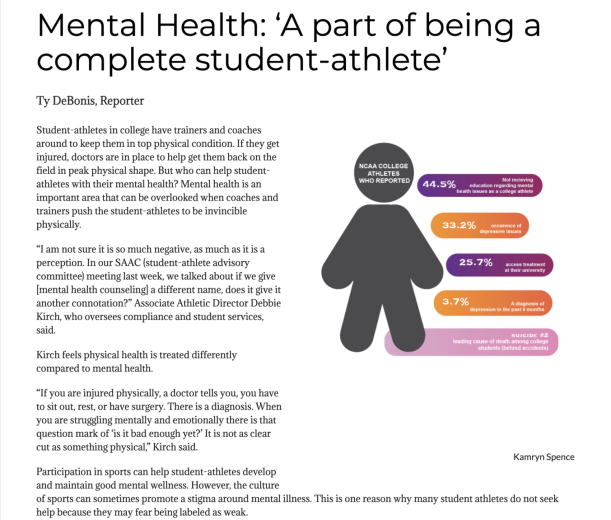Girls College Soccer– Why So Miserable?
In light of the self-inflicted death of girls college soccer player Katie Meyer, it's time to hear from the struggling ones that are still with us across the country; as well as a wake up call for female soccer athletes planning to go D1.
March 26, 2022
Katie Meyer, known for being Stanford’s best goalie and a light in her teammates eyes, passed away recently because of presumed strenuous soccer experiences effecting her mental health. On social media, Katie’s friends have expressed their grief of the loss of the ball of energy they called a friend. Also on social media, students, in light of her death are speaking out about how horrible they themselves are feeling. Players from Vermont, Virginia, Ohio, and Kentucky have talked about how they have been feeling as well. A common thing that I found when interviewing these women is three things: coaches, mental instability, and hunger to move on.I gathered information from five players for this article. From what I obtained, the authoritarian guide colleges have on these women NEEDS to be fixed. Girls who grew up with a love of soccer who wanted to further pursue it, are lost by the time they are sophomores in college. Even the level headed, strong players are put to the challenge being a college athlete.

“I came in [and] did really well [starting] in preseason and then my coach pulled me for no good reason”…”this was when my self worth dropped exponentially” (D1 Athlete in Virginia).
“I needed help” (Anonymous).
“I questioned my worth as a person and thought if I didn’t play college soccer that I would be a failure” (D1 Athlete in Virginia).
A player from Vermont was captain of the her high school soccer team, played on the highest team of her club, and had offers from D1 schools across the country. She eventually chose to go to Vermont. Her freshman year, she did not play because of disagreements with coaches. Sophomore year, the coach ignored texts from her saying she had a class the time practice was, and punished her by not giving her playing time. Junior year, she was told by her coach it would be a ‘breakout year’ for her. Expecting playing time, she was excited. Yet, her coach still did not allow her to play. She resorted to the team psychologist as her self-worth crippled down. The university did not side with the players when they asked for help, either.
A player from Liberty University hit rock bottom after her coach replaced her defensive mid position for the bench after two players on her team sweet-talked to the coach. She also resorted to the team psychologist, but to no avail. Falling into a state of depression, she hit rock bottom in the fall.
A player from Xavier was absolutely torn down by her coach causing her to transfer.
A player from Ohio struggled immensely when dealing with her leg injury.
My goal is not to stray girls soccer players away from playing in college, rather I do not want them to go into this competitive division blindly. There are positives to playing division soccer. In all of the interviews I did they mentioned how their teammates became their best friends, along with the long-lasting memories they made. If you do decide to pursue division soccer, be a support beam for your teammates even if you think they don’t need it. The teammates you get to know in college are going through the same things you are, make them understand you are there for them, in and outside of soccer.
Sources:
http://benchedathome.com/category/collegiate/